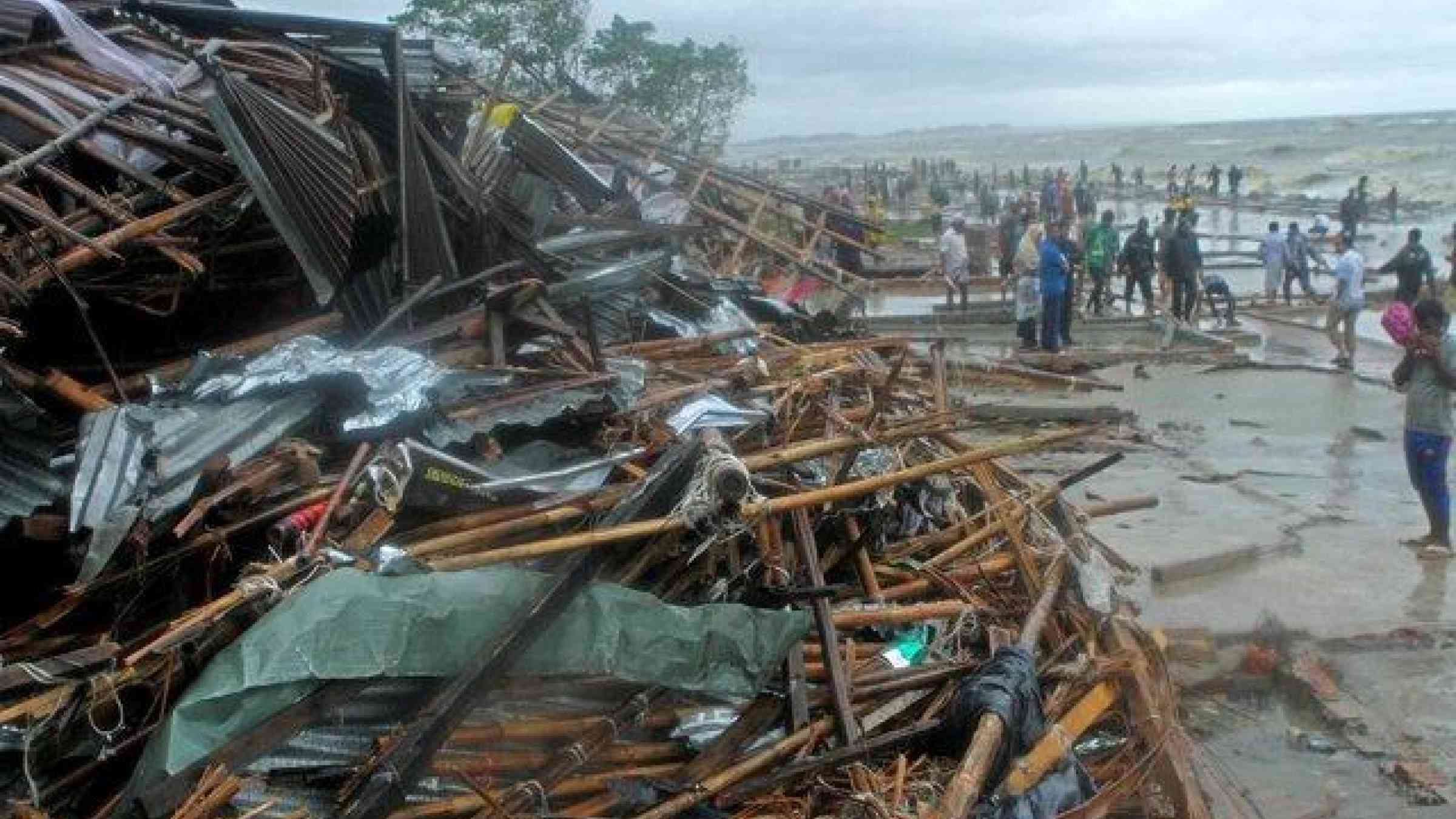Nearly a million people in Bangladesh undertook a desperate exodus from their coastal homes over the weekend as Cyclone Rimbal, a powerful storm churning in the Bay of Bengal, threatened to unleash its fury. Authorities, well-versed in the destructive potential of cyclones, launched a massive evacuation effort, urging residents in low-lying areas to seek refuge in designated shelters constructed from sturdy concrete.
The looming disaster unfolded as Cyclone Rimbal intensified, packing winds exceeding 90 kilometers per hour with forecasts predicting further escalation. Memories of past cyclones, which have ravaged the nation with storm surges and devastating floods, spurred the urgency of the evacuation. Images captured the mass movement of people, carrying essential belongings and seeking safety in crowded shelters.
The Bangladesh Meteorological Department closely monitored the cyclone's trajectory, pinpointing landfall along the country's coastline sometime during the early hours of Monday morning. The powerful winds and torrential rain associated with the storm threaten widespread damage to infrastructure and homes. Additionally, storm surges, colossal waves triggered by the cyclone, pose a significant threat to coastal communities, potentially inundating low-lying areas and displacing residents further.
The Bangladeshi government, drawing on experience from previous disasters, has activated its emergency response protocols. Relief supplies, including food, water, and medicine, have been pre-positioned in strategic locations to be distributed promptly once the cyclone weakens. Additionally, medical personnel are on standby to address any injuries or health concerns arising from the storm's impact.
International aid organizations are also closely monitoring the situation, prepared to offer assistance as needed. Bangladesh, a nation frequently battered by cyclones, has developed a robust disaster preparedness program. This program, including the construction of cyclone shelters and the implementation of early warning systems, has been credited with saving countless lives during past storms.
The full extent of the damage caused by Cyclone Rimbal will only become clear in the coming days. However, the coordinated efforts of the Bangladeshi government and international aid agencies offer a glimmer of hope amidst the unfolding crisis. As the storm bears down on the country's coastline, the primary focus remains on ensuring the safety and well-being of the nearly one million people forced from their homes.

